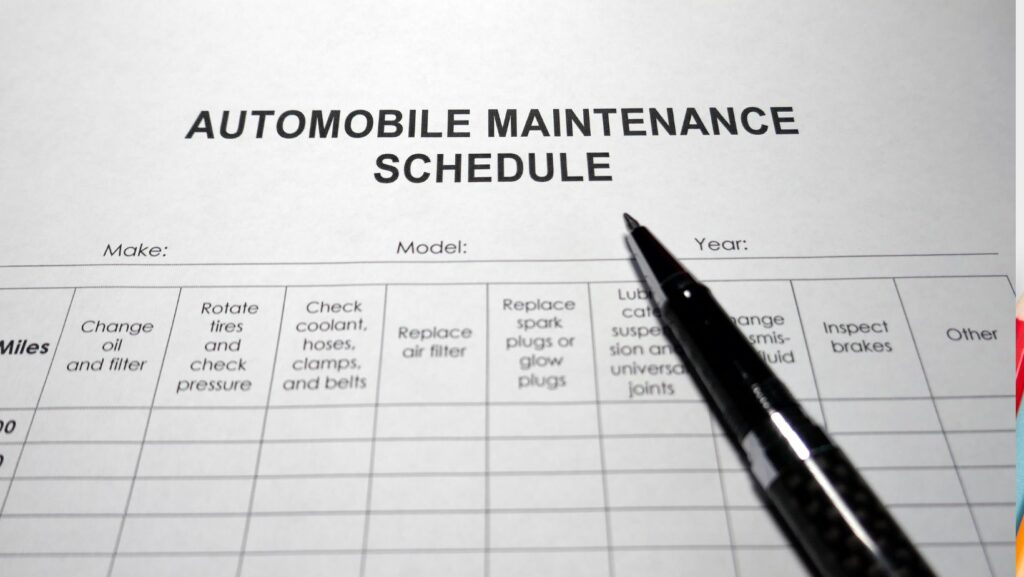Car Maintenance Schedule by Mileage
When it comes to maintaining a car, following a structured maintenance schedule based on mileage is crucial. By adhering to this schedule, car owners can prevent potential issues, ensuring optimal performance and longevity. Tasks such as oil changes, filter replacements, and tire rotations play a key role in keeping the vehicle in top condition.
If you’re planning a road trip or preparing your vehicle for extended travel, it’s crucial to follow a mileage-based maintenance schedule to ensure your car is road-ready. For those flying into Nevada and renting a car instead, services like Easirent LAS rent a car offer convenient pickup near the Las Vegas airport, making your travel smooth from the start.
Car Maintenance Schedule by Mileage is a significant factor in determining when specific maintenance tasks need to be performed on a car. As a vehicle is driven, various components undergo wear and tear, affecting its overall performance.  Keeping track of mileage helps car owners stay on top of essential maintenance requirements, ensuring that the vehicle operates efficiently.
Keeping track of mileage helps car owners stay on top of essential maintenance requirements, ensuring that the vehicle operates efficiently.
Different mileage intervals require specific types of maintenance to keep the car running smoothly. For example:
- 0 to 5,000 Miles: During this initial period, it is crucial to perform tasks such as oil changes and filter replacements to ensure proper engine lubrication and filtration.
- 5,000 to 15,000 Miles: As the mileage increases, additional maintenance, including tire rotations and brake inspections, becomes necessary to maintain safety and performance.
- 15,000 to 30,000 Miles: This interval may involve more extensive maintenance, such as spark plug replacements and fluid checks, to address wear and tear from prolonged use.
By understanding the significance of mileage in car maintenance schedules and the specific tasks required at different intervals, car owners can effectively care for their vehicles and enjoy a smooth driving experience.
Common Milestones in Car Maintenance
At key mileage intervals, specific maintenance tasks are crucial to keep a car running smoothly and prolong its lifespan. Here are some essential maintenance milestones based on mileage that every car owner should be aware of:
Shortly after reaching 5,000 miles, it’s time for the first oil change. This ensures that the engine stays properly lubricated and performs at its best. Additionally, inspecting the tires, brakes, and fluid levels at this point helps in detecting any early signs of wear or issues.
When a car hits the 30,000-mile mark, a major service is due. This includes replacing the air filter, inspecting the suspension system, and checking the spark plugs. Addressing these components at this stage can prevent potential problems and keep the vehicle in top condition.
Upon reaching 60,000 miles, it’s time for a comprehensive check-up. This involves replacing the fuel filter, inspecting the timing belt, and ensuring all vital systems are functioning correctly. Proper maintenance at this stage can enhance the car’s performance and reliability.
At 100,000 miles, a thorough overhaul is necessary to maintain the car’s longevity. Tasks such as replacing the timing belt, inspecting the transmission system, and checking the brake pads are essential at this stage. This overhaul helps in addressing any wear and tear accumulated over time, ensuring the vehicle continues to run smoothly.
Tips for Keeping Track of Your Maintenance Schedule
When it comes to Car Maintenance Schedule by Mileage, staying organized and on top of your schedule is key to ensuring your vehicle’s longevity and performance. Here are some tips to help you keep track effectively.
Utilize digital tools like maintenance tracking apps or software to set reminders for service intervals based on your car’s mileage.  These tools can help you stay proactive by sending notifications for upcoming maintenance tasks, ensuring you never miss an essential service.
These tools can help you stay proactive by sending notifications for upcoming maintenance tasks, ensuring you never miss an essential service.
Maintain a physical maintenance log where you document all service tasks performed on your vehicle, along with the date and mileage at the time of service. This traditional method allows for a quick reference of past maintenance, making it easier to plan future service needs and track the overall health of your car.
Maintaining a car according to its mileage-based schedule is crucial for optimal performance and longevity. By following recommended maintenance tasks at specific intervals, such as oil changes, filter replacements, and tire rotations, vehicle owners can ensure their cars operate efficiently.

